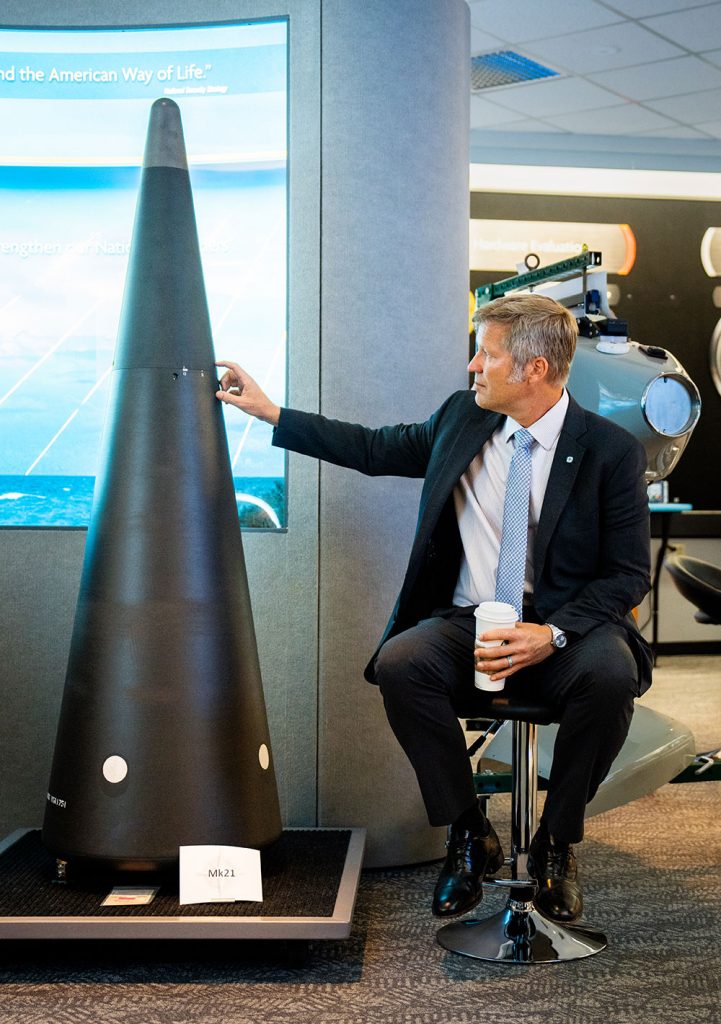Newest installment in the Community Engagement Speaker Series

Mayor Tim Keller gave Sandians insight into the advancements the city of Albuquerque is making to tackle issues of crime, homelessness, drug addiction and mental health.
“All of us, I think, agree that Albuquerque has tremendous potential,” Keller said during his June 15 Community Engagement Speaker Series talk, “but, I think all of us also agree that we have a long way to go to achieve that potential.”
Keller candidly discussed crime in the Albuquerque area and how past governmental efforts have fallen short in preventing and responding to it. He along with Albuquerque Police Department Cmdr. Kyle Hartsock, spoke to the audience about the changes his team has made to get real-time information about when a crime has occurred and how that technology has assisted in the effort to make Albuquerque streets safer.
When he came into office seven years ago, Keller said he identified major problems with the crime prevention strategies that had been previously put in place. To combat this, he said, his team made technological advancements, such as a real-time crime tracking system, roadside speed monitors and gunshot detectors.
Hartsock gave Sandians a real-world glimpse into how this new technology aided in the investigative process with a homicide case in 2022. Through the use gunshot detection technology and advanced surveillance cameras, police were able to identify and locate the suspect’s vehicle and link it to footage from the crime scene.

While sharing details of the case, Hartsock reflected on the active involvement many community members had in the identification and acquisition of the suspect. “When we really come together, and we take away all the biases and maybe the former personal problems, we can literally do anything,” he said.
Community involvement and support is essential, especially regarding support for those dealing with mental health issues themselves or within their families, Keller said. Mental health becomes especially significant when examining public safety and how such calls are handled by police across the country.
“You can call 911, and you wait three hours, on average, for a police officer who may not be able to actually deal with the issue because they’re not experts in addiction, they’re not experts in mental health,” he said. Drug and mental health calls to 911 are often responded to with police or unneeded medical assistance, which creates longer response times for other callers that require a police or medical presence.
To combat these wait times and provide the right response to these calls, Keller and his team, along with Albuquerque Community Safety Director Mariela Ruiz-Angel, started a mental health task force to respond to emergency calls and provide ongoing support for those in need, including housing and employment resources.
“At the end of the day, we see a promise of our city,” Keller said, “a transformative Albuquerque that is not just holding back the challenges that are coming upon us, but is actually pushing back and saying we in Albuquerque actually have a chance to live up to that promise to make this a great place for families from all walks of life to live.”